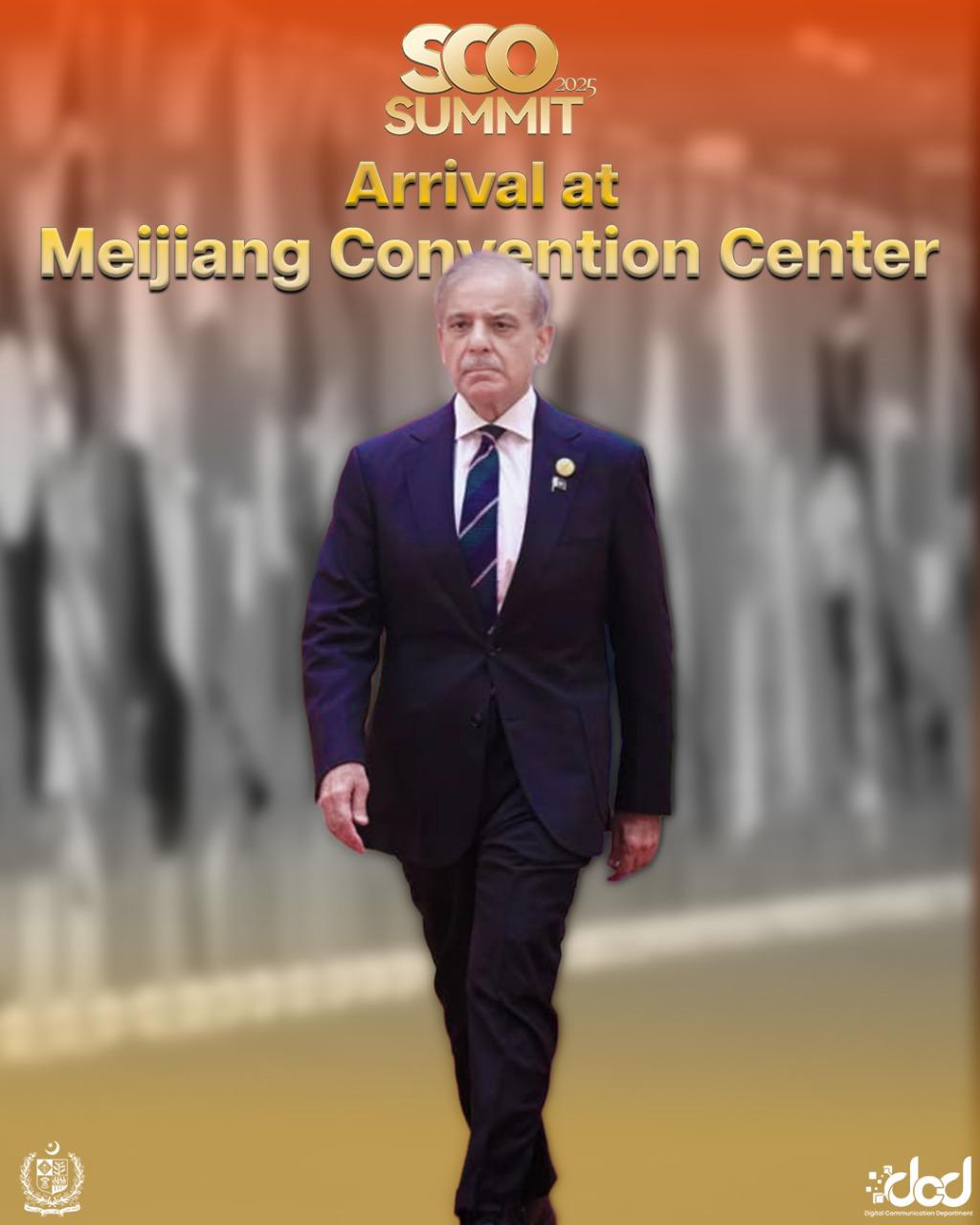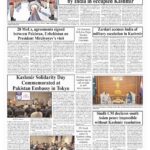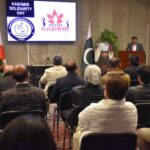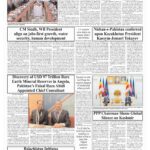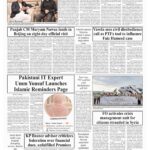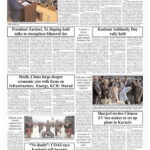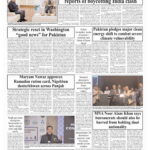By Muhammad Irfan Siddiqi
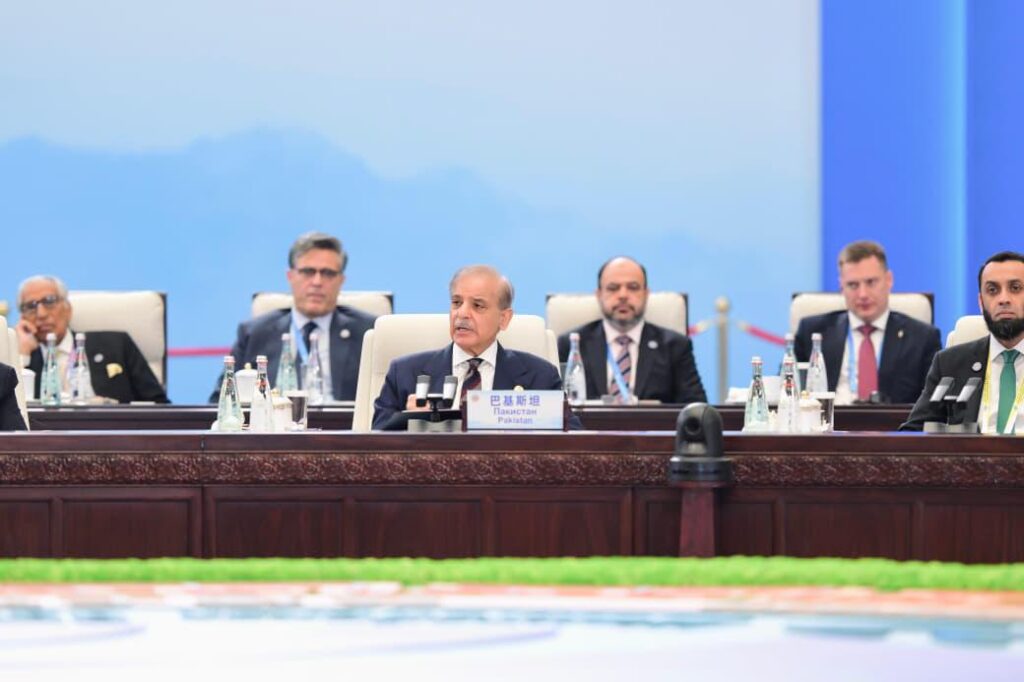
The First Impressions
From the moment Prime Minister Shehbaz Sharif entered the grand hall of the Shanghai Cooperation Organization (SCO) Summit in Beijing, it was clear that this was not just another diplomatic gathering. The atmosphere was charged with anticipation. Delegates from across Eurasia—China, Russia, Turkey, Central Asia, South Asia—sat in rows beneath glittering chandeliers, their flags standing upright behind them. Yet, what caught my eye was how confidently Shehbaz Sharif carried himself.
His demeanor was calm but purposeful, a man who knew he was carrying the weight of a nation that has for too long battled both internal crises and external propaganda. He walked past delegations with a firm smile, greeted old allies with warmth, and nodded politely even at rivals. In that hall, Pakistan’s Prime Minister seemed to symbolize resilience—and perhaps, redemption.
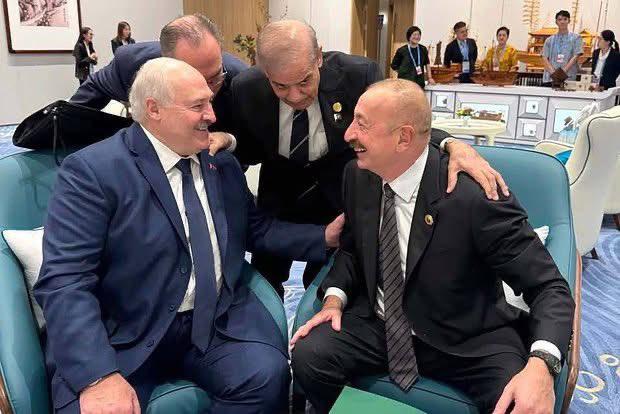
Why This Summit Mattered So Much
For Pakistan, this summit was not routine. The SCO has grown into a strategic platform that brings together the might of China, the pragmatism of Russia, the energy of Central Asia, and the aspirations of South Asia. For Pakistan, the stakes were high: revive its global image, secure economic lifelines, and counter India’s persistent attempts to paint it into a corner.
Watching the delegates, one could sense the subtle games of diplomacy at play. India arrived with its usual tone—harsh, calculated, ready to point fingers. Pakistan, in contrast, came with proposals, with bridges to build, with a vision of connectivity and cooperation. The contrast was striking, and it would shape the outcome of the days that followed.
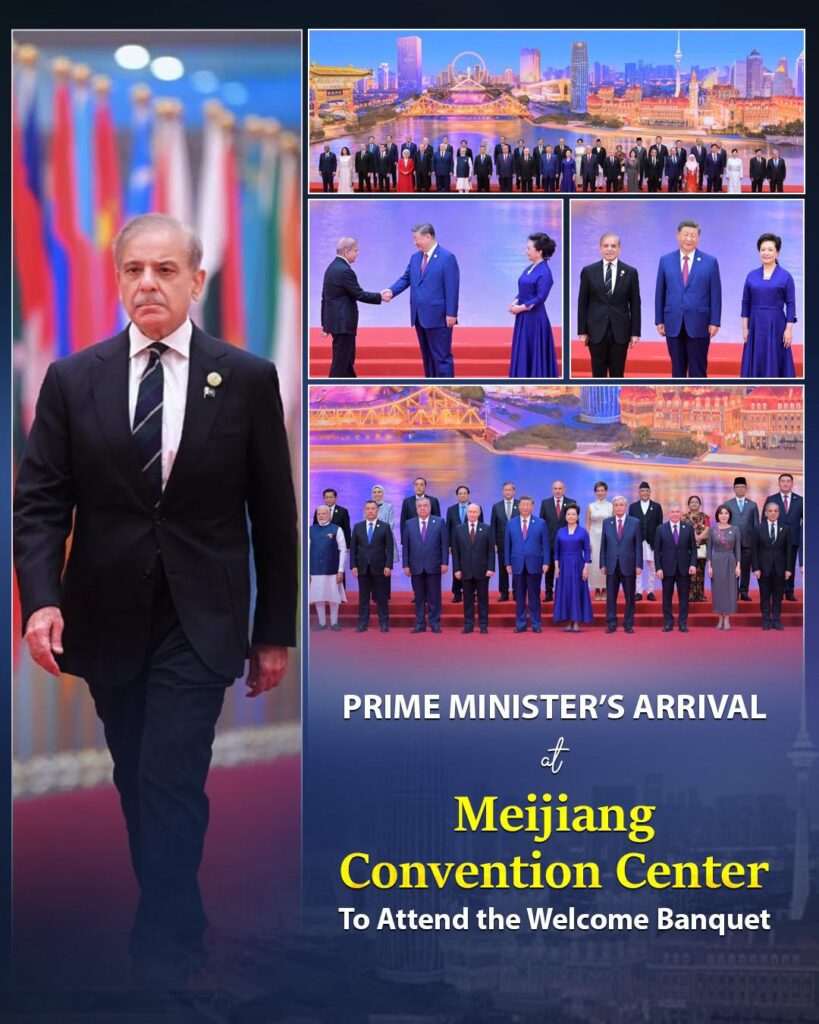
The Meeting with China — The “Iron Brotherhood” on Display
The scene was unforgettable. Prime Minister Shehbaz Sharif seated across from President Xi Jinping, the two leaders framed by the flags of their countries. The cameras clicked incessantly, but the conversation was far from ceremonial.
I observed Shehbaz leaning forward, speaking with conviction about CPEC’s second phase, about Pakistan’s industrial revival, about the energy needs of his people. President Xi listened attentively, nodding, occasionally smiling. There was genuine warmth, but also a sense of strategic clarity. When Xi reaffirmed China’s unwavering support for Pakistan, one could almost feel the weight lifting from the shoulders of the Pakistani delegation.
Later, with Premier Li Qiang, the discussion turned more technical—green energy, modern agriculture, educational exchanges. But again, the tone was not of dependency; it was of partnership. Sitting there, it struck me that this was the essence of what India could not replicate: a relationship built on decades of trust, tested through storms, and strengthened with every passing year.
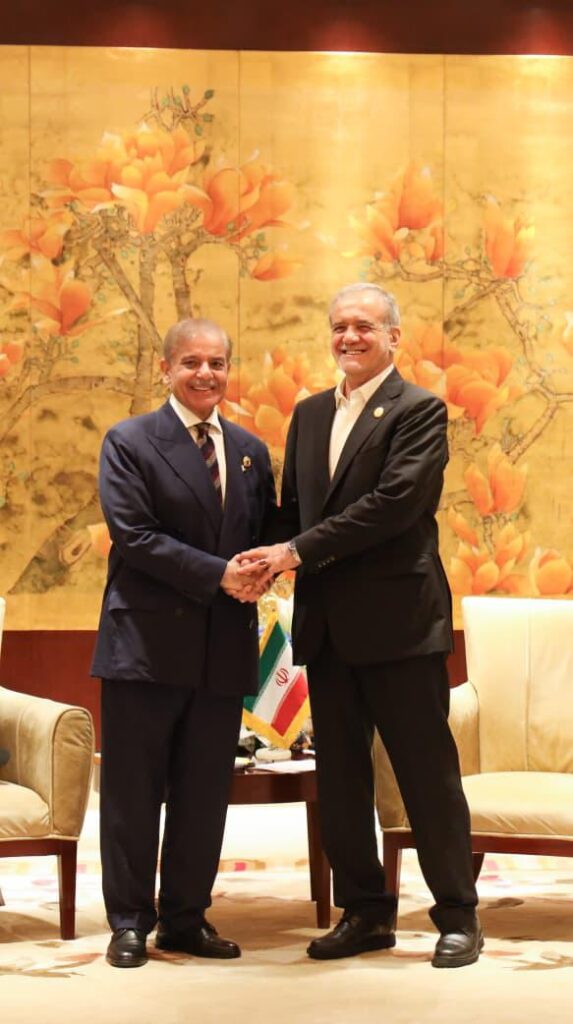
Turkey and Azerbaijan — Brothers in Arms and in Vision
The Turkish President Recep Tayyip Erdoğan greeted Shehbaz Sharif with a brotherly embrace. I noticed how the body language of both men carried a mix of respect and affection. The conversation flowed easily: defense collaboration, trade, cultural exchange. But beyond the words, the symbolism was powerful. Two nations, bound by history and faith, reaffirming their alliance in front of the world.
With the Turkish Prime Minister, Shehbaz spoke about trilateral cooperation with Azerbaijan. And when he met Azerbaijani President Ilham Aliyev, the tone was pragmatic yet warm. Energy, oil, gas, trade corridors—the discussions were precise, but beneath it all was the trust that Pakistan and Azerbaijan have built through mutual support on sensitive issues.
One could not help but contrast this with India’s loneliness in the summit halls. Where Shehbaz moved from one friendly handshake to another, the Indian delegation seemed stiff, distant, sometimes even isolated.
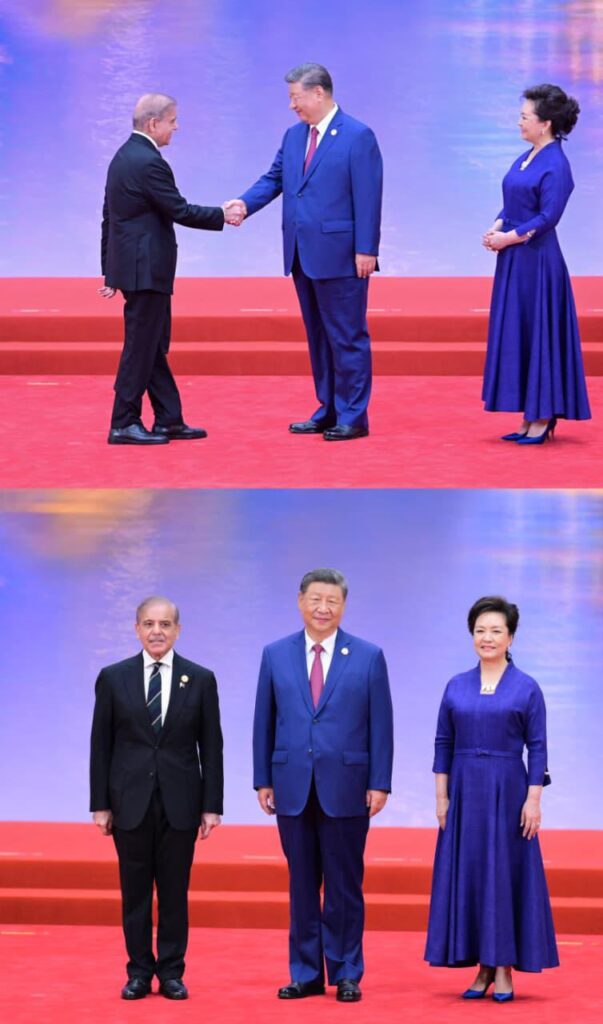
Central Asia Opens Its Doors
Meetings with Kazakhstan, Kyrgyzstan, Tajikistan, and Uzbekistan carried less media glamour, yet as I observed the sessions, they were no less important. These nations see Pakistan as a bridge to the Arabian Sea, a corridor that connects them to world markets. And Pakistan, under Shehbaz’s vision, was ready to offer exactly that.
Trade, transport, counter-terrorism cooperation—all these points featured in the talks. But the unspoken reality was clear: in Central Asia’s imagination, Pakistan is a potential partner of progress, not the pariah that India often tries to portray.
India’s Diminishing Space
Throughout the summit, I watched India’s delegation struggle to make itself relevant. Their speeches were sharp, even aggressive, targeting Pakistan indirectly and sometimes directly. Yet, the hall’s response was tepid. No applause, no nods of support, just polite silence.
In contrast, Shehbaz’s interventions drew attention. When he spoke about stability, connectivity, and prosperity, the themes resonated with the SCO’s spirit. When he outlined Pakistan’s sacrifices in the fight against terrorism, there was acknowledgment in the room. India’s narrative—of portraying Pakistan as a spoiler—was quietly but effectively dismantled.
For India, this summit became a stage of embarrassment: it failed to isolate Pakistan, failed to dominate the narrative, and failed to counter the visible support Pakistan was receiving.
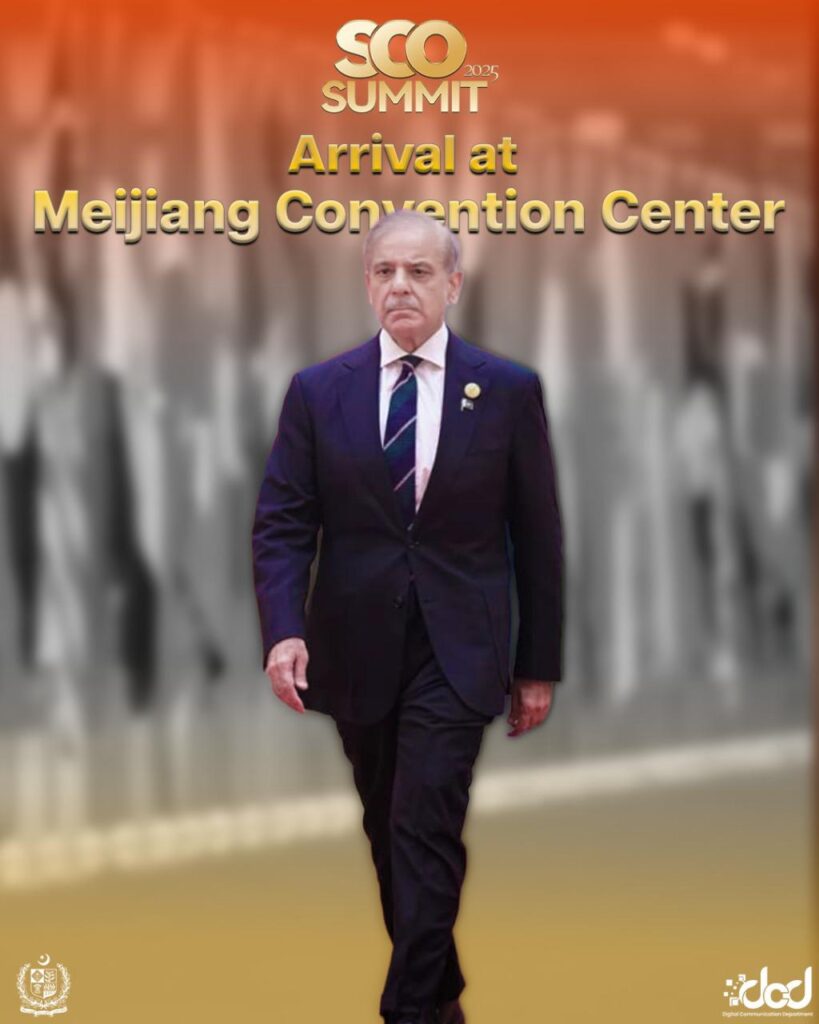
Observing Shehbaz Sharif’s Strategy
As a columnist, I pay attention not just to words, but to patterns, to the theater of diplomacy. Shehbaz Sharif’s strategy, as I observed, rested on three clear pillars:
1. Stability — He projected Pakistan as a responsible state, committed to regional peace.
2. Connectivity — He emphasized Pakistan’s geography as an asset, not a burden.
3. Prosperity — He invited investment, offered markets, and proposed partnerships.
It was simple, yet profound. And it worked.
The Media Mirrors the Reality
Chinese media hailed the “iron brotherhood.” Turkish outlets wrote about brotherly unity. Central Asian press highlighted Pakistan’s connectivity promise. And in Indian newspapers? A tone of disappointment, even bitterness. For once, Pakistan had turned the tables.
The Atmosphere of Victory
As the summit drew to a close, the Pakistani delegation appeared visibly uplifted. Smiles, firm handshakes, animated discussions—it was clear they were leaving Beijing with more than they had arrived with. I noticed Shehbaz walking out of the hall with quiet pride, flanked by his team, and for a moment, the symbolism struck me: a nation too often defined by crises was finally defined by its diplomacy.
India, by contrast, left with silence. Its delegation slipped away, offering little to the press. The comparison was stark, almost theatrical: Pakistan’s victory, India’s defeat.
Challenges Ahead, But a Turning Point Secured
Of course, challenges remain. Pakistan must ensure policy continuity, strengthen internal stability, and protect regional projects from threats. But Beijing’s SCO Summit gave it something priceless: momentum.
And momentum in diplomacy, as in life, can change everything.
Closing Observation
From my seat in Beijing’s glittering halls, the story was clear. This was not just a conference. It was a duel of narratives. And for once, Pakistan emerged stronger, prouder, and victorious.
The SCO Summit of Beijing will be remembered not just for the handshakes and speeches, but for the way it shifted perceptions. Pakistan, through Shehbaz Sharif’s leadership, claimed its space with dignity and purpose. India, despite its loud voice, found itself diminished.
In that grand hall, under the flags of great nations, Pakistan walked tall.

